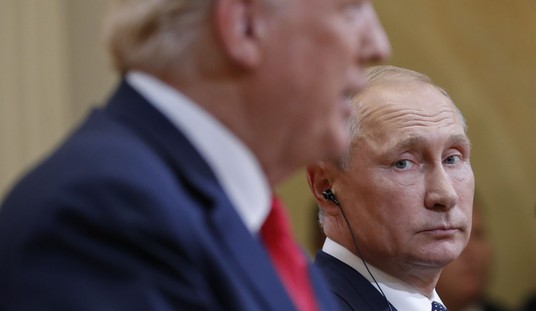“Annual income twenty pounds, annual expenditure nineteen nineteen six, result happiness. Annual income twenty pounds, annual expenditure twenty pounds ought and six, result misery.”
— Wilkins Micawber, David Copperfield
Smart people tell me that a great country cannot regulate its finances the way a family should. Even smarter people, however, nod with satisfaction when they encounter Mr. Micawber’s little disquisition on the economic concomitants of psychological felicity. “I never will desert Mr. Micawber,” they say, echoing Dickens.
It was perfectly obvious before he took office that Barack Obama did not subscribe to this aspect of the Gospel of Micawber. But not all of Obama’s admirers, I’d wager, understood how firmly he embraced another tenet of the Micawber philosophy: to wit, “something will turn up” — the deus ex machina approach to economic resolution, brought down to earth and entrusted with our secular salvation.
When it comes to money, Obama seems curiously divided in his mind. On the one hand, he is not averse to spending gobs of it — millions, billions, trillions. Who’s counting? There’s always more, he seems to think, where that came from. It’s the spigot theory of economics: just turn the handle of government authority, and presto! the tax receipts, the fees, the garnishments, the sundry redistributed adjustments flow in like rain water after a storm.
Money for Obama is the great tool — the great weapon, even — of social reconstitution. There are piles and piles of it about, and all he needs to do to fulfill his campaign promise to “fundamentally transform the United States of America” is move some rather hefty piles from your squares on the gameboard over to the squares marked “nationalized health care,” “educational reform,” “welfare” — I mean “tax cuts for 95 percent of Americans,” and the like.
On the other hand, Obama is suspicious of money. He seems to believe it carries a moral taint, especially when any significant amount of it finds its way into the hands of ordinary citizens. I don’t mean to suggest that he has any objection to money personally. Clearly, he thinks it is OK that his wife pads off for a photo op at a local soup kitchen in sneakers that cost$540. But in the larger sense — i.e., when he thinks about society as a whole — he deprecates wealth and the acquisitive instincts that make its accumulation possible.
He is not, of course, alone in this. Jean-Jacques Rousseau, for example, thought pretty much along these lines, as did his heir Karl Marx and countless other would-be benefactors of mankind. It seems to me, though, that there is a lot to be said for Anthony Trollope’s observation, which he puts into the mouth of Plantagenet Palliser, in his novel Can You Forgive Her? Responding to a character who announces that he lacks “mercenary tendencies,” Palliser says
“There is no vulgar error so vulgar,–that is to say, common or erroneous, as that by which men have been taught to say that mercenary tendencies are bad. A desire for wealth is the source of all progress. Civilization comes from what men call greed. Let your mercenary tendencies be combined with honesty and they cannot take you astray.”
I think Trollope is right. And I believe that abandoning the philosophy of mercenary tendencies, rightly understood (as Tocqueville might put it), is a prescription not only for impoverishment but also for immiseration and, ultimately, for tyranny.
That conjunction — between the abandonment of the philosophy of mercenary tendencies and the advent of immiseration and tyranny — is not immediately obvious to all comers. Rousseau, for example, did not grasp the connection. Marx did. Indeed, he eagerly foretold and abetted those consequences, but unhappily did not live to witness their consummation in the Soviet Union, China, and elsewhere.
It is not entirely clear to me where Obama stands on this spectrum. I believe he was in earnest when he told his cheering followers, just a few days before the election, that they were on the threshold of “fundamentally transforming the United States of America.” His actions since taking office — think only of what just happened to the supposedly “secured” bondholders of Chrysler Corporation (R.I.P.) — suggest that he was not making an idle boast. He really is pursuing the fundamental transformation of this country.
What should we think of that? I believe it must give us pause. A full answer to the question “Why should it give us pause?” would make for a very long post. Let me leave you with this wise observation from George Santayana:
“In a hearty and sound democracy all questions at issue must be minor matters; fundamentals must have been silently agreed upon and taken for granted when the democracy arose.”
Only a couple of times in our nation’s history have fundamental differences divided us. The result then was not pleasant. There is no reason to believe it will be any more pleasant this time around.









Join the conversation as a VIP Member